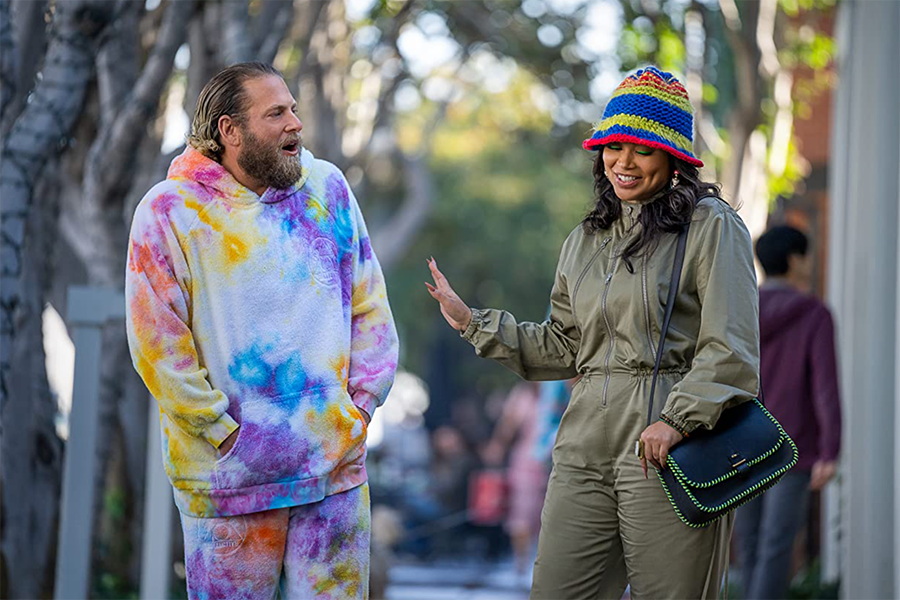
'You People' exceeds its bounds
By Martha K. Baker
The title of this raucous rom-com is the generic put-down between cultures. Not just "you" personally but "you" generally -- and the people you road in with. The title sets the tone for Kenya Barris and Jonah Hill to update "Guess Who's Coming to Dinner" from 1987 to 2023 but without nearly the grace. "You People" doesn't work because it works too hard.
Along the way, the script offers sparkles and debates, canned dialogue and offensiveness, so "You People" has earnest sacrifices toward comedy and tragedy. It also has a cast of familiars that makes it fun to watch if only to recognize favorite faces.
The stars are Lauren London as the Black Muslim Amira and Jonah Hill as the white Jew Ezra. They meet cute, as the saying goes, if by "cute" you mean the white man mistaking the Black woman as his Uber driver. His wrestling out of that assumption and her accepting his excuse lead to six months of hip-hop happy dating in Los Angeles.
And, then, meet the parents. That concept is a tried and true attempt at movie hilarity as witness the movies of the same name. In "You People," at Roscoe's Chicken & Waffles, Ezra meets Amira's parents, played by Nia Long and Eddie Murphy. Murphy's comedic skills are reduced by this father, born Woody now Akbar (as revealed by his brother, played by Mike Epps). Akbar is in no mood for diversity. Her parents comprise a father, played by David Duchovny, who is a laid back fan of rapper Xzibit, and an over-eager, air-quoting mom, played painfully well by Julia Louis-Dreyfuss. "You People" runs giddily along a laugh track of family yammering.
The supporting cast. Akbar includes luminaries like Sam Jay as Ezra's snappy podcast partner and legends like Rhea Pearlman, Richard Benjamin, Hal Linden, and Eliot Gould. "You People" also has Los Angeles, shown in sunny and neon glory through Mark Doering-Powell's photography. Plus, Bekon's soundtrack provides a basis for the sweet-and-sour Shakespearean romance.
At base of the romance is the usual: he doesn't understand her because he's naive about women, and she doesn't understand him, who's weaseling out of his own heritage. Writers Barris and Hill set up the disparities throughout: Listen, for example, to the old gars at a Yom Kippur service. The writers try elbow-grease-hard to smooth over disagreements in the film's last 20 minutes, but nobody talks like that.


